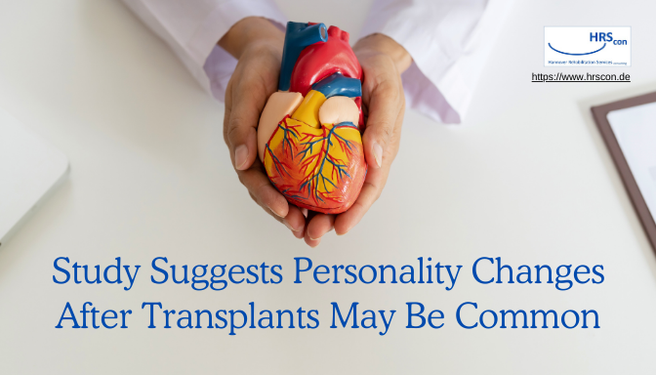Veganism is gaining popularity across the globe, especially in younger generations. While a vegan diet (VD) is often touted for its health benefits, such as reducing the risk of cardiovascular disease, diabetes, and obesity, it also comes with potential downsides that are often overlooked. This article explores the potential health risks associated with veganism, particularly for vulnerable populations like children, pregnant women, and adolescents, as well as addressing nutrient deficiencies that may arise.
The Rise of Veganism and Its Benefits
In recent years, veganism has become more mainstream, especially as people become more conscious of their health and the environmental impact of their food choices. Veganism is a diet that completely excludes all animal products, including meat, dairy, eggs, and even honey. Other vegetarian diets, such as lacto-vegetarian (no meat but includes dairy) or pescatarian (includes fish), offer more flexibility but still provide many of the health benefits associated with reducing meat consumption.
Studies show that plant-based diets can significantly reduce the risk of chronic diseases. A well-balanced vegan diet is low in saturated fat and cholesterol, which is beneficial for heart health. It is also high in fiber, which can help with weight management and blood sugar control, reducing the risk of type 2 diabetes.
Nutrient Deficiencies in a Vegan Diet
Despite the health benefits, veganism may lead to nutrient deficiencies if not carefully managed. The most notable concern is the lack of vitamin B12, which is essential for brain function and the production of red blood cells. B12 is naturally found in animal products like meat, eggs, and dairy. Without proper supplementation, vegans are at risk of developing neurological issues and anemia due to a deficiency in this vital nutrient.
In addition to B12, vegans may struggle to consume adequate amounts of protein, iron, calcium, and vitamin D. Plant proteins are less digestible than animal proteins, meaning that vegans need to eat a variety of plant-based protein sources like beans, lentils, tofu, and nuts to meet their needs. Iron from plant foods is also less easily absorbed than from animal sources, increasing the risk of iron deficiency anemia. Additionally, calcium and vitamin D, critical for bone health, are often lacking in a vegan diet, especially without dairy consumption.
Long-Term Health Risks
One of the main concerns raised in the study is the long-term impact of a vegan diet on bone health. Research suggests that vegans have a higher risk of fractures due to lower bone mineral density (BMD). This is because vegans may not get enough calcium and vitamin D, both of which are crucial for strong bones. Vitamin D helps the body absorb calcium, and without sufficient levels of both nutrients, bone health can suffer. According to a study mentioned in the report, vegans were found to have a 2.31 times higher risk of hip fractures compared to meat-eaters.
Mental health is another area where vegans may face challenges. A systematic review found that individuals on a vegan or vegetarian diet reported higher levels of anxiety and depression compared to meat-eaters. This could be due to deficiencies in essential nutrients like zinc and omega-3 fatty acids, both of which play a role in brain function and emotional well-being.
Veganism and Children
For children and adolescents, the risks associated with veganism are particularly concerning. During periods of rapid growth, the body needs adequate amounts of protein, calcium, iron, and other nutrients to support development. Some studies suggest that children on vegan diets may have lower bone mineral density and height compared to their peers who consume animal products.
In one study, vegan children were found to have significantly lower levels of vitamin D and calcium, leading to weaker bones and an increased risk of fractures later in life. Given that childhood and adolescence are critical periods for building bone mass, starting adulthood with compromised bone health may increase the risk of osteoporosis and fractures.
Veganism and Pregnancy
Pregnant women also need to be cautious when following a vegan diet. Proper nutrition during pregnancy is essential for fetal development, and certain nutrients, like B12, iron, and omega-3 fatty acids, are critical for the baby’s growth. Studies have shown that vegan mothers are at a higher risk of giving birth to underweight or preterm babies due to inadequate nutrition.
For instance, B12 deficiency in pregnant women can increase the risk of neural tube defects in their babies, a serious condition that affects the development of the brain and spine. Omega-3 fatty acids, particularly DHA, which is typically found in fish, are also crucial for brain development in infants. Without proper supplementation, vegan mothers may inadvertently impact their child’s cognitive development.
Mental Health and Orthorexia
Mental health problems have also been associated with veganism. A review highlighted that vegans and vegetarians are more likely to experience depression and anxiety than meat-eaters. This could be linked to deficiencies in nutrients like vitamin B12, zinc, and omega-3 fatty acids, which are essential for maintaining mental well-being.
Another psychological issue that has been observed among vegans is orthorexia nervosa, an eating disorder characterized by an obsession with healthy eating. People with orthorexia often have rigid rules around food and may become overly restrictive, which can lead to nutritional deficiencies and a poor relationship with food.
The Importance of Supplementation and Balanced Diets
While veganism offers many health benefits, it’s important to recognize that a poorly planned vegan diet can lead to nutritional deficiencies and long-term health risks. Vegans need to be proactive in ensuring they are getting enough protein, vitamin B12, calcium, iron, and other essential nutrients through either fortified foods or supplements.
Healthcare providers should monitor vegan patients closely to ensure they are meeting their nutritional needs, particularly in vulnerable populations like children, pregnant women, and older adults. In some cases, supplementation with B12, iron, and omega-3 fatty acids may be necessary to prevent deficiencies.
Conclusion
The rise of veganism has brought attention to the health benefits of plant-based diets, but it is important to also consider the potential risks. A vegan diet can be healthy and sustainable if it is well-planned and includes a variety of nutrient-rich foods. However, for certain populations—such as children, pregnant women, and those with existing health conditions—careful attention must be paid to ensure that all nutritional needs are met. Supplementation and regular health check-ups are essential to avoid long-term health issues.
In conclusion, while veganism can be part of a healthy lifestyle, it is crucial to understand the potential pitfalls and take steps to ensure a well-balanced, nutrient-rich diet. With proper planning and awareness, vegans can enjoy the benefits of their diet while minimizing the risks.




